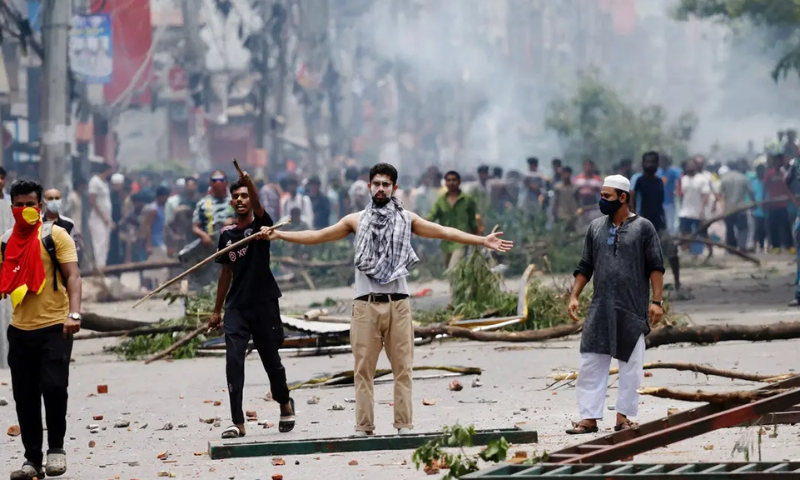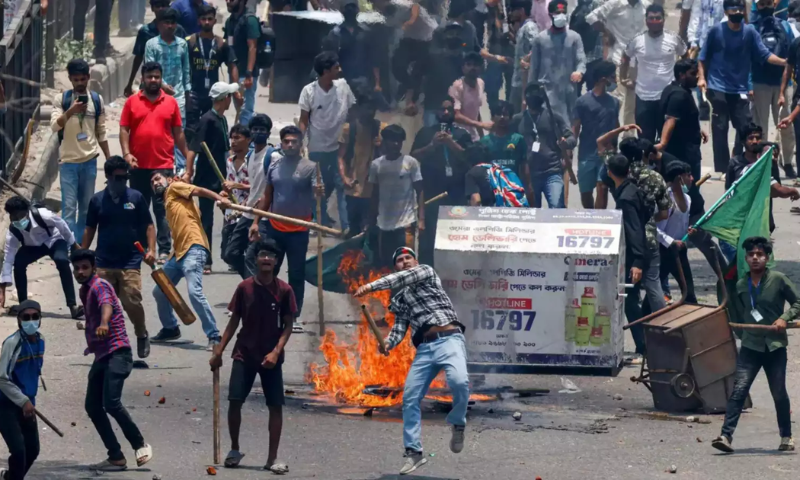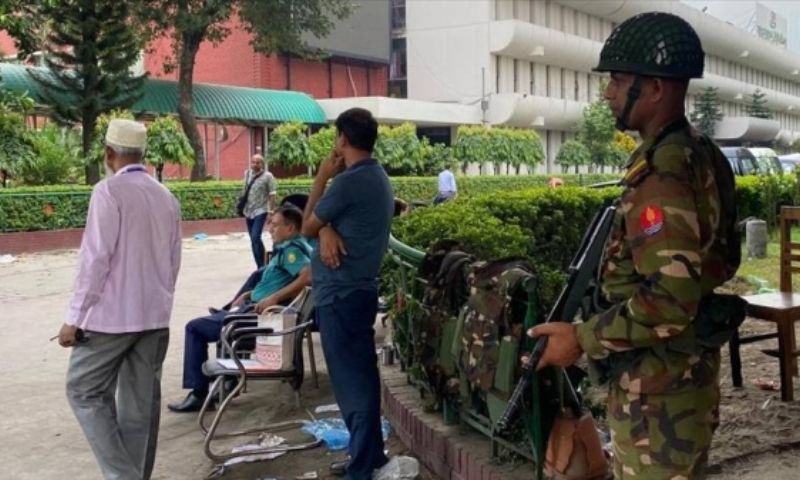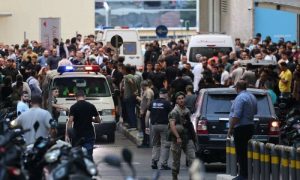DHAKA: Bangladesh Home Minister Asaduzzaman Khan confirmed on Sunday that at least 147 people have died amid the recent violence that erupted during student protests over government job quotas. The minister’s statement marks the first official acknowledgment of the death toll, which includes students, police officers, activists, and people from various professions.
Speaking to reporters in Dhaka, Khan clarified that the investigations are ongoing, with some independent estimates suggesting the death toll may exceed 200. The violence, which began earlier this month, has highlighted deep-seated tensions over government employment policies.
The unrest started on July 15 when students clashed with police while protesting against a government quota system that reserved 30% of public sector jobs for the descendants of war veterans. The protesters argued that the quota system was unfair and perpetuated nepotism, demanding its abolition.
In response to the escalating violence, the government initially imposed a mobile internet blackout on July 17 and extended the restrictions to broadband services on July 18. The blackout aimed to prevent the organization of further protests and control the flow of information. However, the blackout severely impacted communication and access to online resources for the public.
READ ALSO: Putin Warns to Restart Production of Nuclear Weapons if US Deploys Missiles in Europe
On Sunday, the government lifted the mobile internet blackout, with Junior Minister for Posts, Telecommunications, and Information Technology Zunaid Ahmed Palak announcing the restoration of services at 3 p.m. local time (0900 GMT). To compensate for the disruption, users will receive a 5 GB data bonus valid for three days. Despite this, access to social media platforms, including WhatsApp, Facebook, TikTok, and YouTube, remains restricted.
The government had already restored broadband internet on July 23, but the curfew imposed to manage the law and order situation has only recently started to ease. Schools and educational institutions across the country remain closed as the situation stabilizes.
The Supreme Court of Bangladesh had ordered a reduction in the controversial job quotas. The court’s decision cut the quota for veterans’ descendants from 30% to 5%, and also imposed limits on quotas for ethnic minorities, transgender individuals, and disabled persons to 2%.
The violence has not only raised questions about the government’s handling of civil unrest but also sparked debate over the fairness and impact of job quotas. The recent crackdown has intensified scrutiny on the administration’s approach to managing public dissent and addressing social grievances.
























